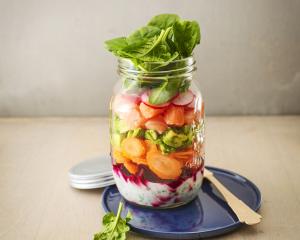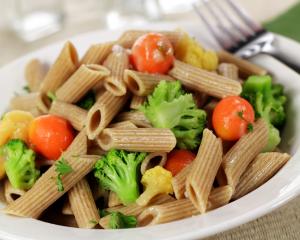
Stress is normal and often healthy. In everyday life, stress plays a role in alerting us to life's occasional dangers and challenges, so we can prepare ourselves for them and find solutions to impending problems.

We either confront the danger or escape it. Too much stress or prolonged stress can trigger physical, emotional or mental symptoms such as muscle tension, mood swings or racing thoughts.
Under normal circumstances, your body and mind rely on several mechanisms that help you cope with stress and recover from stressful circumstances. This is called adaptation and is a normal and healthy response to the stressful events we all encounter from time to time.
However, when stress is severe, cumulative (caused by multiple issues piling up on top of each other), or present for a long period of time, your ability to cope with or recover from it may be compromised.
If you feel anxiety is having a negative impact on your life, speak to your healthcare practitioner.
Here are a few tips to help you to develop better coping mechanisms.
Food is your fuel.
Strengthen your body with the correct food and nutrients to lay the foundation for a healthier nervous system, brain and body.
Stabilising blood sugar levels is crucial for a more even mood.
A study published in the American Journal of Psychiatry found that people who followed a traditional diet consisting of vegetables, fruit, meat, fish and whole grains tended to be less anxious than those who followed a Western diet of processed or fried foods, refined grains, sugary products and beer.
The ModiMed Diet is a research-based approach to help improve mood and resilience.
The diet is a modified version of the classic Mediterranean diet, often dubbed the world's healthiest.
The Mediterranean diet typically includes lots of fruits, veggies, legumes and whole grains, is high in lean protein such as fish and poultry, and features olive oil as the main fat.
Research also shows that curcumin, the active constituent in turmeric, can reduce anxiety and depression. This bright yellow spice can be easily added to soups and curries. .
Magnesium is an essential mineral that cannot be made by your body. When stressed, the body uses higher amounts of magnesium, so replenishing these stores is vital.
Some of the benefits include increased cellular energy production, reduced feelings of anxiety, and it provides support for muscular cramps and tension. Magnesium can encourage a deeper, more restorative sleep which is critical for wellbeing.
Avocado and raw nuts and seeds contain some magnesium however the body tends to use more than we can consume through food alone so supplementation is worthwhile and very safe.

Omega-3 fatty acids are essential fats, that we need to obtain from our diets as our bodies can't produce them. These good fats can help to reduce anxiety, reduce the frequency of mood swings and help with improving sleep. Sardines, salmon, avocado, chia and hemp seeds are all good food sources.
Exercise helps to balance out the neurochemicals that contribute to anxiety so a few 10-minute walks around the block each day can be incredibly beneficial.
Sitting in a green space to eat your lunch or even adding some indoor plants to your home and work space can be helpful.
Unhealthy fats coming from the likes of margarine, canola oil, deep-fried food, bought muesli bars, 2-minute noodles and pastries can increase feelings of stress due to the cellular damage they cause.
Opt for olive oil, avocado oils, raw nuts and seeds instead.
Limit coffee and caffeinated drinks, which can increase your heart rate and breathing which increases feelings of nervousness.
People often desire coffee when tired or stressed. However, a few tired days weaning off or reducing the use of the most abused drug worldwide will allow natural energy to return and reduce anxiety.
Green tea is a good alternative as it contains some caffeine for mental alertness. However, it also has L-theanine which buffers the negative effects of caffeine and promotes a feeling of calmness afterwards.
 Photo: Getty Images
Poke bowl
Photo: Getty Images
Poke bowl

Poke bowls (pronounced poh-kay) are based on the bite-sized marinated fish salad famous in Hawaii and now have become a popular meal-in-a-bowl concept.
They are easy to make at home with this quick recipe and you can include a range of beneficial foods for your nervous system.
Ingredients
450g uncooked wild salmon, skinned and cut into 2cm cubes (or hot-roasted, if preferred)
½-1 medium ripe avocado, diced
¾ cup mango pieces, defrosted
½ cup thinly sliced capsicum
2 cups packed spicy greens, such as watercress or mizuna, roughly chopped
½ cup blanched broccoli florets
½ cup chopped fresh coriander
½ cup edamame beans, boiled
3 Tbsp tamari/soy sauce
2 Tsp sesame oil
1 Tbsp black sesame seeds
½ lemon, cut
Brown rice salad
2 cups cooked short-grain brown rice, warmed
2 Tbsp rice vinegar
½ tsp turmeric
2 Tbsp extra-virgin olive oil
1 Tbsp Dijon mustard
Method
Gently combine salmon, tamari and sesame oil in a medium bowl to let the flavours infuse.
Make brown rice salad by combining rice and greens in a large bowl.
Whisk vinegar, oil and mustard in a small bowl. Add to the rice salad and mix well. Place on the base of a bowl.
Top with all the other individual ingredients, placing each thing separately around the bowl like numbers on a clock.
Top with sesame seeds and sliced lemon, then take an Instagram-worthy photo of it, feel grateful for your nourishing food, and then enjoy every mouthful.













